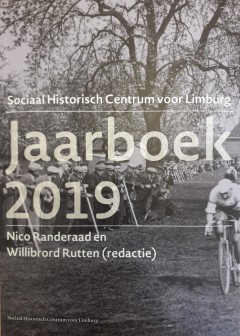De socioloog Harry Hoefnagels SJ (1922-1990). Een kritische Limburger in vakbondszaken
DOI:
https://doi.org/10.58484/ssegl.v64i12332Trefwoorden:
twintigste eeuw, arbeidsgeschiedenis, Limburg, Harry HoefnagelsSamenvatting
In the 1960s and 1970s, sociologist and Jesuit Harry Hoefnagels, born in de mining town of Kerkrade, played a prominent role in debates on trade union renewal, developments in the Catholic Church, and in society in general. This article focusses on his ideas about industrial relations. Influenced by developments in the French Christian trade union movement (CFTC, later CFTD) in the early 1960s, Hoefnagels was very critical of the passive and conciliatory attitude of both the catholic and social democratic trade unions in the Netherlands. He was a pioneer in the movement towards the merger of the catholic Nederlands Katholiek Vakverbond (NKV) and the socialist Nederlands Verbond van Vakverenigingen (NVV) into Federatie Nederlandse Vakbeweging (FNV) in 1976. In Limburg, he played a prominent role in protests against the social consequences of mine closure in the late 1960. Research on his opinions and public performances is relevant in the context of societal change in the Netherlands in the 1960s and 1970s.
Downloads
Gepubliceerd
Nummer
Sectie
Licentie

Dit werk wordt verdeeld onder een Naamsvermelding-NietCommercieel 4.0 Internationaal licentie.



